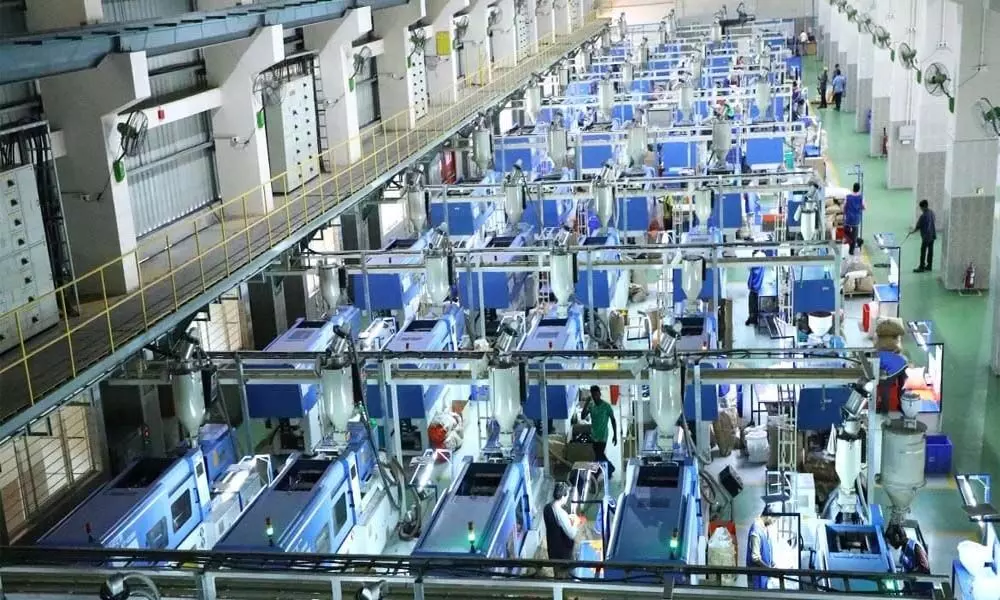SUP ban set to put 8k plastic units in trouble
Govt’s decision draws flak over replacement plan for discardable plastic items
image for illustrative purpose

With government planning to phase out use of single use plastic (SUP), more than 8,000 plastic producers, mostly in the unorganized sector, are going to be affected in India. The move of banning SUP, hailed by experts, has also drawn flak with some questioning the replacement plan for the discardable plastic items. BizzBuzz spoke with Deepak Ballani, Director General, All India Plastics Manufacturers'
Association (AIPMA), on what awaits the industry with government phasing out use of SUP and the technological requirement in the country to produce plastic of 120 microns. "There are over 50,000 producers of plastic products, it is estimated that about 7,000 units are manufacturing single use plastic products and couple of thousand more units are involved in some SUP alongside other products. In all, 8000 to 10,000 units would be affected by phasing out of SUPs," says AIPMA.
The alternative to discardable plastic (SUP) can be compostable plastic, but the availability and popularity remains a concern. The raw material to produce discardable plastic in India is mostly sourced from imports majorly from European countries. At present, the global usage of compostable plastic is very small of the overall plastic consumption.
"Plastic industry contributes around Rs3 lakh crores to the Indian economy. It gives employment to more than 50 lakh people. In view of ban on SUPs, small and unorganized units will be compelled to close unless timely support is given for the revival," Deepak Ballani said.
SUP is plastic produced and designed to be thrown away after being used only once. The Union Ministry of Environment, Forest and Climate Change has notified the prohibition of the manufacture, import, stocking, distribution, sale, and use of certain single-use plastic items with low utility and high littering potential by 2022. This would include SUP products such as plastic straws, non-woven carry bags, plastic cups, plastic carry bags, packaging films, plastic cutlery, ear buds, EPS for decoration and other similar items.
AIPMA said that it backs government's vision of Swachcha Bharat to ban SUP given its environmental impact. However, experts suggest that a concrete plan on the plastic waste management is required before phasing out disposable plastic.
On the recent notification on SUP, AIPMA said that increasing the thickness of certain plastic products from 50 micron to 75 micron and eventually to 120 microns for the year 2022 will create a problem for the industry as the technological advancement to manufacture carry bags of 120 microns is not available in India.
"The SUP ban will impact few thousand manufacturers and human resources, engaged with those enterprises. Thus, will reduce amount of post-consumer waste or littered waste, which will reduce the amount of collectable waste for the rag pickers thus impacting them," AIPMA said in its statement to Bizz Buzz.
The AIPMA Director General also said that the industry is still recovering from the aftermath of
Covid-19 pandemic. "The Covid-induced lockdown in the first wave forced MSME to shut down completely. Subsequently, some units could start processing, the larger units on the other side, could adopt to the strength requirement of the production resumption. The main issues were related to reduced market, financial disruption and quantum jump in raw material prices - all these factors have crumbled the very existence of smaller units."

